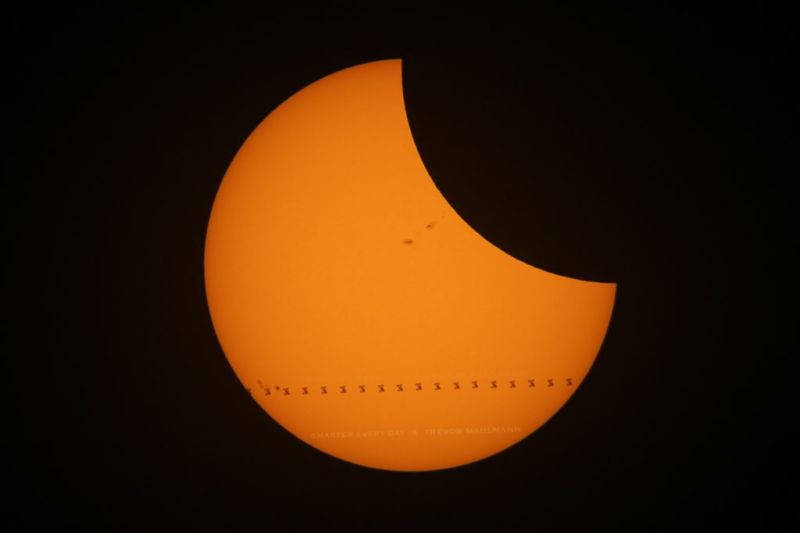
Enlarge / The solar eclipse and ISS transit back in August of 2017. (credit: Trevor Mahlmann)
As much of the world has slowed down amid COVID-19, the same cannot be said for the burgeoning small satellite broadband industry. In recent weeks, SpaceX CEO Elon Musk announced he hopes to move the company’s Starlink broadband service to public beta in about six months. And that very same day, the Federal Communications Commission unanimously approved new rules for preventing orbital debris and collisions in space (those rules have been revised so as to not hamper NASA, but they still require more analysis, tracking, and disclosure from satellite companies). It's a small snapshot of what's been an ongoing debate: astronomy advocates say we are running out of time to preserve pristine views in the night sky, companies sending satellite constellations into space say they are mitigating the threat their satellites could pose to skywatchers.
The fleets of low-cost satellites will certainly be beneficial for telecommunications and Earth observation customers, particularly those living in remote areas. Crowds of satellites decrease the "revisit time" between satellite passes and make it easier to stay in touch, or to get frequent images during natural disasters.
Yet astronomers warn that without care, the satellites could ruin science observations and also make it difficult for groups like Native Americans who see the sky as part of their culture. Space organizations in Europe and the United States are already sounding alarm bells in reports and press releases. The European Southern Observatory (which operates the Very Large Telescope in Chile, among others) recently warned their observatories would be "moderately affected" if constellations launch at current rates. The National Science Foundation's Vera C. Rubin Observatory in northern Chile said nearly every image obtained during twilight "would be affected by at least one satellite trail."
No comments:
Post a Comment